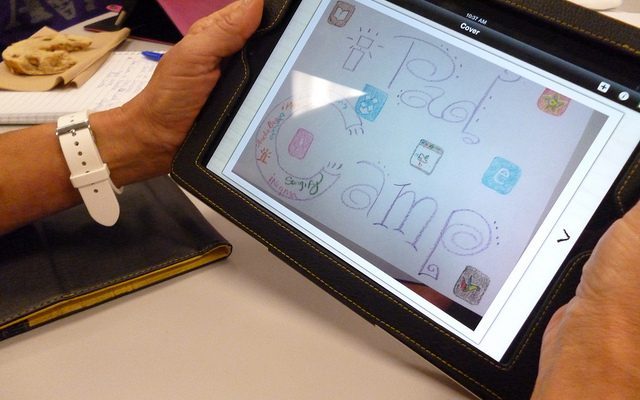‘Screen time’ is about more than setting limits

Nathan Fisk, University of South Florida
In today’s media-rich world (or media-saturated, depending on your view), one rarely has to look far to find parents concerned about the ways that kids engage with technology. Recently, managing “screen time” seems to be on everyone’s mind – particularly during these summer months when kids find themselves with more time on their hands.
As someone who has spent the majority of my career studying kids and safety online, I get a lot of questions from parents about screen time. My response? There’s a lot more to digital media consumption than expert advice about hourly limits.
Where ‘screen time’ comes from
The idea of “screen time” initially gained traction in 1999, when the American Academy of Pediatrics suggested that parents avoid smartphone, tablet, computer and TV use for children under two and limit such use to no more than two hours for children over two, adding hours as kids mature. While the American Academy of Pediatrics relaxed these guidelines somewhat in 2016 (expanding their policies to include positive digital media use and suggest family media plans), the core idea of screen time remains largely unchanged.

Penguin Random House
Despite the allure of easy-to-follow rules that address parental concerns, screen time recommendations have drawn increasing criticism from a wide range of experts.
In the academic world, the science supporting screen time recommendations has major limitations. Lab-based studies don’t always translate to the complexities of real life. More often than not, screen time studies demonstrate connections between problems with well-being and media use; they don’t demonstrate that one causes the other. For example, while research suggests that there’s a connection between screen time and childhood obesity, that could just mean that kids who are less active are more likely to be obese and spend more time in front of screens. The research does not suggest that screen time causes obesity.
Screen time today

unGlue
As our media practices have changed, and adults themselves have begun to spend more of their time online, the idea of screen time has not quite kept up with the times. The world is increasingly saturated with all kinds of positive, interactive media experiences – for children and adults alike. Ideas about limiting screen time assume all screen experiences are equally negative for kids and that they’re replacing positive offline activities.
Yet, we know that kids do all kinds of positive things with digital media, often in ways that support and are supported by “real life” activities – in ways similar to adults. They go online to hang out with friends, catch up on events and seek out entertainment and information, just like anyone else.
In my own work, I’ve argued that some of the problems that parents have with kids and technology are, in fact, not about technology at all. With each generation, kids have been increasingly restricted from going outside on their own. With fewer private spaces to be a kid, we shouldn’t be surprised when kids turn to social media apps to hang out and socialize – and get upset when we stop them.
What looks like a “waste of time” or an “addiction” is often just everyday hanging out.

AP Photo/Jose Luis Magana
So what should parents do?
How, then, can parents get a handle on their children’s media use? As always, it’s complicated – and no expert advice should trump the real, everyday experiences that parents have with their own children. That said, there are some general guidelines that can help.
First, parents should get away from ideas about time and focus more on the content, context and connections provided by different kinds of engagement with media. There’s a world of difference between spending a few hours playing games with close friends online and spending a few hours interacting with hate groups in an online forum.
Second, parents should ask real questions concerning the well-being of their children, independent of their media use. Are your children healthy, socially engaged, doing well in school and generally happy? If so, there’s probably no need to enforce hard restrictions on technology. If not, it’s best not to rush to conclusions about the inherent evils of technology. Have a conversation with kids about what they’re doing and what they think the rules should be. Unilaterally cutting kids off without understanding their problems can often make things worse.
![]() Finally, parents should remember that there’s no substitute for a meaningful, supportive relationship between parents and children. With a stable, trusting relationship, even negative experiences online can become positive learning experiences. In my many years of working with families, I’ve learned that if you already care enough to be worried about digital media, you’re probably already “doing enough” to protect your kids.
Finally, parents should remember that there’s no substitute for a meaningful, supportive relationship between parents and children. With a stable, trusting relationship, even negative experiences online can become positive learning experiences. In my many years of working with families, I’ve learned that if you already care enough to be worried about digital media, you’re probably already “doing enough” to protect your kids.

Nathan Rupert, CC BY-NC
Nathan Fisk, Assistant Professor of Cybersecurity Education, University of South Florida
This article was originally published on The Conversation. Read the original article.






